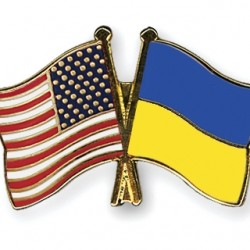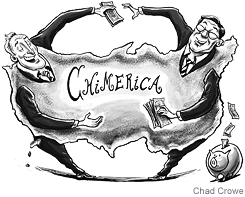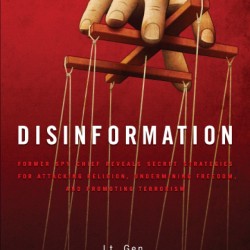http://politicalticker.blogs.cnn.com/2014/05/28/biden-name-one-innovative-product-from-china/?hpt=hp_c3
"Vice President Joe Biden blasted China on Wednesday in a speech about foreign policy, arguing the country hasn't produced anything innovative.
'China-and it's true - is graduating six to eight times as many scientists and engineers as we have. But I challenge you, name me one innovative project, one innovative change, one innovative product that has come out of China,' the vice president said forcefully."
If I am being generous, I'll imagine that Biden doesn't actually believe what he is saying, or more, what he is implying, and is simply trying to manipulate the uninformed voter for political gain. That's bad enough for what it says about the current level of sophistication in American political discourse. If he actually believes all of the implications of his latest speech, then America has a serious problem with the political intelligence of it's leadership.
The obvious implication of Biden's words is that despite China's gains, America has some kind of inherent, unassailable long-term advantage with regards to innovation. And long-term is the key here. Despite China's growing aggregate economic power, it still remains a developing country far behind the US in terms of per capita wealth and development levels. But it is growing fast. Of course Chinese innovation levels cannot currently compare to America's. However, that is not really the point. Neither can it's military power. But China's neighbors don't fear the China of today so much as the China of tomorrow. And economic competitors should be taking a similar view.
Moreover, China is well aware of it's shortcomings with regards to innovation, and is taking steps to address the deficiency. Furthermore, Chinese thinking with regards to its innovation deficit is much more nuanced than Biden, who magically ascribes it all to a lack of--you guessed it--freedom. The Chinese are open to the possibility that its innovation deficit is a product of many factors, including genetics, culture, a still nascent and underdeveloped tertiary education system, and also its authoritarian form of governance. It's also quite possible that, to a large extent, it is still more beneficial for Chinese firms to focus on catching up and copying existing technology than trying to play with the big boys on the bleeding edge--for now.
Finally, it remains unclear to me exactly how important innovation is to national power. These days, information and ideas quickly transcend national boundaries. And the innovating firms have transnational structures. Take the iPhone as an example. Certainly it was better for America than the phone was developed in America by an American company, as compared to the alternative of it having been created in China or India. Nonetheless, much of the profit resulting from the creation of the smartphone seems to have been quickly shared with the world. Despite intellectual property laws, companies in other nations such as Korea's Samsung were quickly able to reproduce the technology, and even market it for profit. Most of the production for the iPhone's components was done in Asia. And the profits Apple made on the phone are dispersed globally. Apple is currently using clever accounting and legal maneuvers to hide tens of billions of dollars of profit overseas, and the company has no intention of repatriating the cash due to high US corporate tax rates. It would rather book the profits in lower-tax countries. Finally, despite being registered in America, there is no guarantee that in the future the ownership (and thus the ultimate destination for much of the profit) of a company like Apple has to remain principally American.
It's a changing world. Banking on the fact that China's lack of innovation relative to the US is a permanent, immutable fact is dangerous. Furthermore, the accepted wisdom that states that innovation is the key to future national power seems to be a bit simplistic given the globalized nature of new ideas and technology. Certainly it matters, but does it matter more than an advanced and efficient infrastructure or an educated workforce with a culture of thrift and hard work? Ideas and new technologies can be copied--or even stolen. And they transcend the boundaries of a nation-state, both geographically and with respect to a government's ability to ensure its share of the profits from a new invention. Infrastructure and workers do not.
|
 Author
Author









